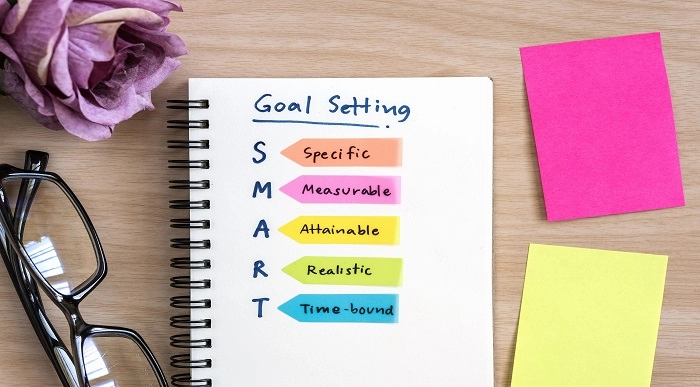Personal Development
How to be Funnier – Top 19 Practical Tips
How to be funnier? This is probably the most common question for a lot of us at some point in our lives. If you are naturally socially anxious, you might believe you will never be able to make others laugh effortlessly. But, the good news is that developing a good sense of humour doesn’t require much effort. Instead, you just have to learn a few fundamental laws of comedy to lay the groundwork for the funny side of your personality.
Some of you probably are a bit confused now, knowing that being funny is also a matter of learning.
Of course, yes.
Making others laugh is a skill that will serve you well throughout your life. So, it is well worthwhile to learn. You may connect with others by making them laugh. It reduces negative emotions and has several positive outcomes.
So without further ado, let’s get started.
First, let’s begin with a basic understanding of what the term ‘fun’ means.
You might again be confused, “Why am I learning basic vocabulary here?” Bear with us, please. There’s a purpose behind it.

Table of Content
What is Fun?
Fun is defined as something that gives pleasure, delight, or playfulness. The Oxford English Dictionary defines fun as-
“light-hearted pleasure, enjoyment, or amusement; boisterous joviality or merrymaking; entertainment.”
The keyword here is ‘entertainment.’ That’s the primary purpose of fun.
Having fun is excellent for you since it helps balance our stress and feel-good chemicals, avoiding illness in the long run by enhancing our immune system. It also aids in the enhancement of our-
- creativity,
- vitality,
- productivity,
- and general intellect.
It’s like our brains go back to childhood. That’s why we love to be with funny people and always respect those folks whose profession is to put a smile on our faces.
Let’s look at the characteristics of a funny individual.
 Are you interested to learn how to keep your family 100% fit?
Are you interested to learn how to keep your family 100% fit?
Characteristics of a Funny Person
Certain characteristics appear to enhance a person’s ability to be funny.
- Funny people tend to have a higher IQ.
- They are more creative.
- They have superior cognitive ability.
- They can easily make new friends.
In the next section, we will discuss the advantages of becoming a funny person.

Why Being Funny is a Superpower?
The reality is that nothing is more appealing than a good sense of humour. People like you more when you’re funny.
That’s the way it is.
You do not have to be Mr Funny-Man. But being able to crack a joke at the right moment is like having a SUPERPOWER.
How so?
- Humour is our brain’s way of compensating us for correcting our cognitive mistakes. It boosts our mood because decoding the joke requires brainpower, and thinking reduces bad feelings.
- When you make someone laugh, they let down their guard. They are not defensive for a short period. So, when you want to connect with someone, humour is a great approach to get your foot in the door.
- Women appreciate witty people because a sense of humour indicates intelligence. Reliving funny moments between you two might be beneficial to your relationship. Furthermore, friendships can benefit from laughter. It can also help to reduce tension during difficult discussions.
- Laughter can help you feel better. People who use humour to cope with stress have stronger immune systems, are less likely to have a heart attack or stroke, have less discomfort during dental work, and live longer lives.
- Playful people perform better in school. Workplace humour is also crucial. Fun is more appealing than money or prospects for promotion because a fun office atmosphere may help you do your tasks stress-free and become more productive.
So, to reap these benefits, you must have what psychologists refer to as a “positive humour style.” It entails utilising humour to reduce conflict and strengthen relationships.
Although it is not rocket science, becoming more humorous requires some effort on your behalf as well as the skill to recognise where to begin.
So, whether you’re getting ready to make your debut at the local comedy bar, have a big corporate presentation to give and don’t want to bore the audience, or simply want a new positive and fun challenge in life, these below-mentioned hilarious ways to be funny will help you keep your audience looking on the bright side of things.

Goal Setting Course – Turn Your Dreams Into Reality
How to be Funnier?
First of all, we will observe how to be naturally funnier. We’ve all met someone who is usually effortlessly funny, but how do they do it?
It’s not magic. Being inherently funny is a skill that can be honed over time.
The tips below will assist you in getting started!
Opening Up and Discovering Your Sense of Humour
Initiate by Loosening Up
Being excessively self-conscious and uptight are barriers to developing and communicating a natural sense of humour. Remember that laughing is contagious, so if you carry yourself openly and humorously, others will also be ready to laugh. If necessary, you may follow the lead of others to break the ice.
Try to smile and laugh more.

Get to Know Yourself and Your Perspectives on Life
Everyone has an opinion on life, and those ideas can be funny to others in many circumstances. Inherently hilarious people are likelier to see comedy in themselves and their ideas. It would be tough to discover humour in such situations if you are too self-conscious or uptight.
Consider sharing an embarrassing tale about yourself with others to open up to them. However, be cautious since self-deprecating humour may make you or others uncomfortable. Choose something that is in good taste.
Look for Humour in Daily Situations
To get funny material, many comedians look around them. Others use personal experiences, such as upbringing or previous relationships, to make people laugh.
- Set a goal of observing five humorous things that happen to you every day.
This strategy will teach you to recognise the humour in everyday circumstances, which everyone will enjoy.
- Try to discover content and inspiration in everyday life’s odd and weird parts. What oddities do you see in popular music, fashion, holidays, and current events? Just observe and jot it down.
Visit a Friend or Acquaintance Who is Inherently Funny
In real life, we’ve all got buddies that are always up for a good laugh and worth learning how to be funny from them. So what is it about them that makes them so funny?
- Pay close attention to what makes them humorous when you see them.
- Is it their tone of voice, body language, content, overall demeanour, or something else that naturally makes them funny?
- Identifying what makes them humorous can give you ideas on how to be naturally funny as well.
- Spend more time with individuals who always remain funny all the time and offer to share a funny story or joke of your own.
Explore Different Humorous Approaches
People respond differently to different humorous approaches. Some people appreciate sarcastic and witty remarks, while others prefer-
- jokes,
- impressions,
- and hilarious behaviours.
All of these are genuine ways to be funny, but choosing something that matches your personality is important if you want to be naturally hilarious.
You must be familiar with the several types of humour- funny enough to use in order to succeed here. They are as follows:
Anecdotal Humour
This version of humour refers to funny personal stories that may or may not be embellished.
Dry Humour
It is a type of humour in which a person speaks funny comedy jokes while maintaining a serious, calm attitude.
Hyperbolic Humour
Exaggeration is a hallmark of hyperbolic humour.
Ironic Humour
Ironic humour occurs when the joke’s meaning is totally opposite to its actual meaning.

Practice Being Funny
Make it a daily goal to say or do something that makes someone laugh. A good sense of humour does not develop quickly, and professional comedians frequently spend years honing their distinct styles. You’ll be on your way to being naturally humorous in casual conversation if you start small.
- Don’t be scared to express anything you find funny. While others may not always get your sense of humour, you may utilise their reactions to better your style, substance, and timing.
- Consider what makes you giggle. If you find something funny, share it with a friend who you believe will enjoy it as well.
- Share a hilarious scene from a film, television program, funny book, or comic strip.
You may download some best-selling comedy books by clicking on the link below to find some books on being funny.
Being Funny in a Social Situation
Be Mindful of Your Target Audience
Be mindful of who you’re conversing with and what makes them laugh. Remember that just because you find something funny, it does not always indicate that others will. You must first understand your audience before you can make them laugh.
- Keep in mind that humour evolves with age.
- Older people are less inclined to laugh at the sexual or violent comedy, although the proper younger audience may enjoy it.
- Inside jokes, specific group stories, or practical jokes are best shared with close pals.
- Avoid making jokes about religion or politics unless you have similar viewpoints.
- Use humour to make individuals feel more at ease and optimistic. Do not single them out or dismiss their looks or ideas.
When Telling a Story or Cracking a Joke, Work on Your Timing
According to professional comedians, timing is crucial and essential to comic delivery.
- Stories and jokes become funnier when the narrator stops immediately before the punchline to enhance drama and suspense.
- You may also wait a few seconds after the punchline to laugh so that people can never be sure whether you are kidding or not.
- Allow your audience time to laugh before going on to the next issue.
- If you observe something amusing, don’t be afraid to point it out. Take advantage of the opportunity.
- Keep stories brief and uncomplicated, as too much background or subplots may distract the listener.
- Place the funny element at the conclusion of the sentence.
- Callbacks bring everything together. This is where you go back (callback) and allude to anything that just
- garnered a chuckle or make something from items stated earlier in the conversation.
- This might be one of your successful jokes or something funny or memorable from someone else. Remember, you don’t have to tell a new joke every time you laugh.

Make Jokes About Yourself
When you make yourself the target of humour, audiences appreciate it. It will encourage them to open up and will make it simpler for them to laugh at both you and themselves. As a consequence, individuals will start laughing, and their social anxiety will decrease.
- It is not advisable to begin by making jokes about someone else.
- If you’re with someone who can laugh at themselves, you may gently make fun of them. Make sure you don’t go too far, or you’ll transform a fun occasion into an embarrassing one.
Choose Benign Subjects
It’s usually safe to make fun of authoritative people like politicians, celebrities, or (ex) bosses.
Make no jokes about persons who are physically or mentally disabled or who are suffering from a painful situation such as divorce, death, disease, or sexual assault.
Avoid Re-telling and Memorising Old Jokes
Even a good sense of humour will turn people off if you tell well-recited jokes, such as knock-knock or obscene ones. Furthermore, telling a joke that you saw on TV or discovered online may look rehearsed and unnatural. Maintain your observations and present them in your unique funny ways.
Being Naturally Funny at Work
Use Humour to Help You Integrate into the Job
Successful leaders have been demonstrated to have a good sense of humour as well as a strong work ethic. You may improve your reputation at work by being humorous.
Use Humour to Connect with Coworkers
Humour can be used to increase group cohesion by defusing bad situations and eliciting good emotions.
You can use comedy to highlight your similarities with coworkers or your supervisor. This will assist you in making friends at work and making the workplace more pleasant.
Be Cautious While Using Workplace Humour
You want to reveal your funny side rather than passive-aggressive or insulting ones. You also want to be able to capture and hold people’s attention. Avoid dangerous forms of “low comedy” at work.
Physical appearance or shortcomings, oppressed groups (e.g., women and minorities), physical or mental disabilities, and allusions to body functions and sex are all potentially offensive issues.
How to be Funny in Conversation?
Now, you’re probably thinking, “That’s great, but what if I don’t want to share jokes or stories?” How can I be funny in ordinary conversation?
In normal discussions, you may apply the above-mentioned steps.
But if these don’t work for you, here are some extra ideas for everyday conversation:
- Have a go-to joke that you can use in almost every circumstance.
- Make yourself the butt of the joke. But don’t make fun of your own insecurities. Stick to aspects about yourself that are a little weird, but not so much that you are worried about them. You can get a pretty good idea about the above points from these links:
- Follow the BBC at the Edinburgh Festivals
- How Edinburgh changed British comedy
- In general, if you believe you aren’t a humorous person, it may be beneficial to begin paying attention to what you find funny.
- Listen to funny individuals, podcasts, comedy shows and so forth.
- If you’re concerned that you’re not quick enough with your jokes or that you’re not excellent at speaking in general, try wandering around your house and stating the names of things. This will allow you to speak more quickly.
Finally, quit putting so much effort into it. Not everything you say has to be funny. And you are not required to tell the perfect joke. It’s fine to get the punchline wrong.
The most essential thing is to develop a good sense of humour. Unfortunately, not everybody is born with it. Some people use humour to conceal vulnerabilities or to cover up anxiety or depression.
Above all, you must be true to yourself. So, put your inner critic in a box and try out some good jokes or tales on individuals you know would be receptive.
David Nihill, an internationally touring comedian, was requested to deliver a talk at Google and agreed to share it. Watch his entire talk on how to be funny here.

Additional Tips and Tricks to be Funnier
If being inherently funny is out of your league, you might try the following funny tips and tricks.
Response Yes/No Questions with the Opposing Answer
Consider giving the opposite response when someone asks you a yes/no question, and you believe they already know your answer. Then, of course, laugh and deliver your true response after a little pause for raucous laughter.
The key is that when you provide the opposite answer, you surprise your audience, and they laugh. Then you may go to your true narrative.
Play with Numbers
When it comes to being funny, numbers are your best friend.
- Add ‘only’ before a large number when you’re going to mention it.
- When you’re going to speak a really little figure, say something like “it’s a huge amount” beforehand.
To be surprising, all you have to do is raise people’s expectations to be the opposite of what that number suggests.
Top Courses of this Category
Use the Rule of 3
At its most basic, the Rule of 3 develops a pattern and then concludes with something unexpected. For instance,
- you may say red, white, and blue. But how about red, white, and barf?
It’s funny, and your brain perks up since it’s an unexpected twist on the Rule of 3.
This breakaway from the pattern established by the previous two items causes tension and surprise, which frequently results in laughter. Consider it as-
- the first word is normal,
- the second word is normal
- and the third word is funny/unusual/different.
Try to come up with an unexpected answer for three while you’re talking. This is also extremely funny when written.
Here are some instances from the world of TED.
Make Use of a Character Switch
When we narrate a narrative, there are frequently several characters involved. Most of the time, such characters have unique identities that others will have opinions about. For instance,
- Little Red Riding Hood is the vulnerable one,
- while the Big Bad Wolf is the deadly one.
But what if you swap the personalities and the Big Bad Wolf becomes vulnerable? When people’s assumptions are overturned, things get quite interesting and funny.
Of course, after a big laugh, correct the fact.

“Whatever” can be Your Secret Weapon
Those are excellent occasions when others make fun of you, mock you, or ask you uncomfortable questions.
If everyone expects you to lose your cool and you instead flip things around by being funny about it, you instantly become a celebrity.
So, don’t be afraid of the irritating inquiries. Be a star by oozing confidence, wit, and charisma. Say, “whatever.”
FAQ
How can you become funny over the text?
You can be funnier over the text by following certain techniques stated below-
- use funny memes,
- channel your favourite comedy,
- be honest,
- be blunt,
- share an anecdote etc.
How can you become funny to your girlfriend?
You can follow the below steps to be funny to your girlfriend, such as-
- teasing,
- witty remarks,
- funny pop culture references,
- humorous voice inflexion,
- comedic storytelling,
- start every conversation off with humour etc.
What causes you to laugh?
It is a reaction to external or internal stimuli. Laughter can be elicited by actions such as being tickled, as well as by hilarious stories or thoughts. It is most frequently seen as an audible manifestation of a variety of pleasant emotional states, such as pleasure, mirth, happiness, or relief.
Conclusion
Practice makes perfect. The more you practice your jokes, storytelling, and timing, the better you will become. Take inspiration from the wisdom of people who know how to make people crack up. With these above-mentioned tips, you can absolutely master the concept of how to be funnier. Now, you don’t have to be worried about thinking you weren’t born funny and are no stand-up comedian.
What to Read Next:







